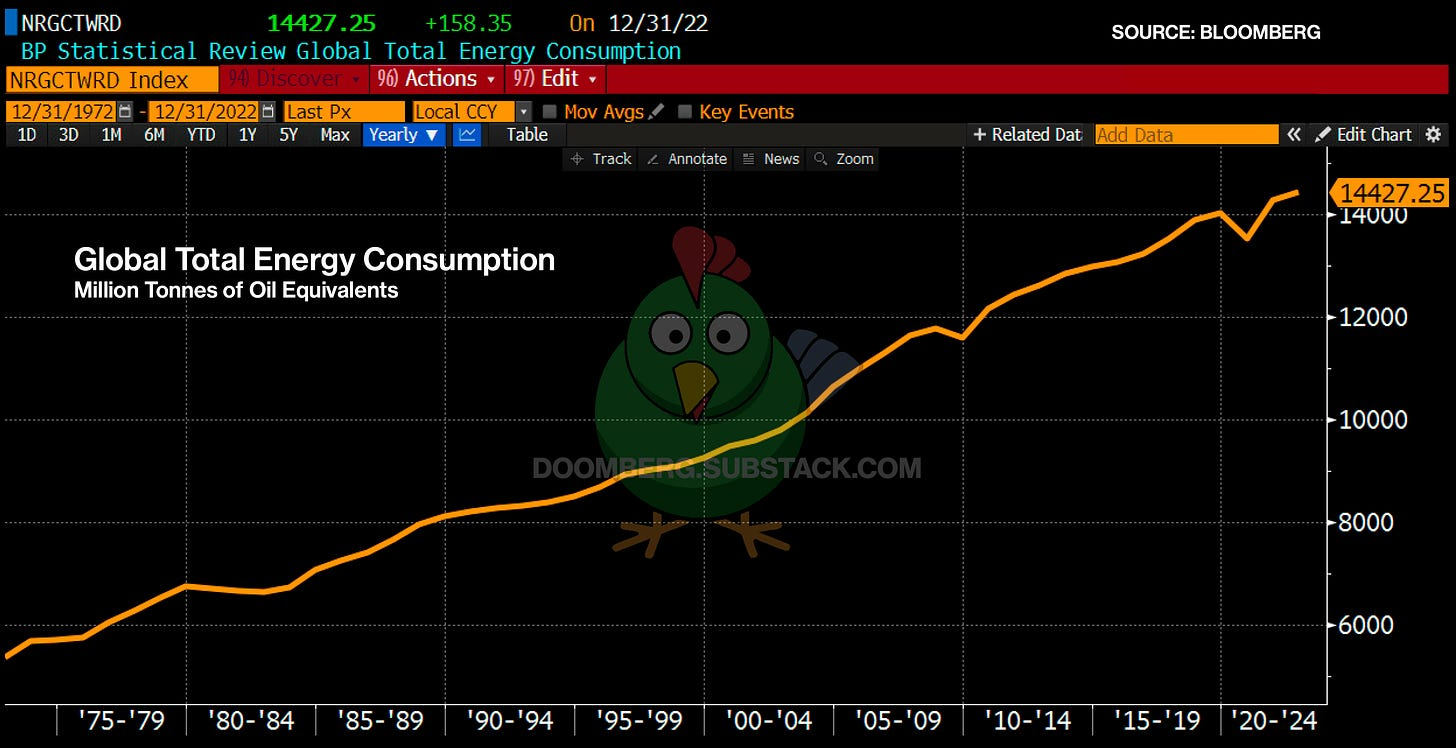 Such is the intellectual stature of Ludwig von Mises that even many decades after his passing the opponents of classical liberalism and laissez-faire capitalism continue to attack his life’s work. A recent instance of this phenomenon is an article published in Jacobin by Matt McManus, which, rather unoriginally, accuses Mises of being a “market ideologue” rather than a “hardheaded thinker.” As readers of this website may expect, McManus fails to substantiate his accusations, instead revealing his limited understanding of the Misesian paradigm. In what follows, I shall investigate some of his main contentions and point out their major errors.
Such is the intellectual stature of Ludwig von Mises that even many decades after his passing the opponents of classical liberalism and laissez-faire capitalism continue to attack his life’s work. A recent instance of this phenomenon is an article published in Jacobin by Matt McManus, which, rather unoriginally, accuses Mises of being a “market ideologue” rather than a “hardheaded thinker.” As readers of this website may expect, McManus fails to substantiate his accusations, instead revealing his limited understanding of the Misesian paradigm. In what follows, I shall investigate some of his main contentions and point out their major errors.
First, McManus quotes Mises’s observation from Socialism that “it is not possible to compromise … by putting part of the means of production at the disposal of society and leaving the remainder to individuals.” Then he suggests that the above claim provides an illustrative example of Mises’s supposed dogmatism and antisocialist prejudice. If, however, one is familiar with the great Austrian’s insight that the middle-of-the-road policy is bound to generate a self-reinforcing spiral of inefficiencies that, if unreversed, culminates in total economic chaos, then one can easily interpret the passage in question as a completely dispassionate implication of this fact rather than an expression of any sort of uncompromising political agenda.
This example is characteristic of McManus’s approach: his spotty knowledge of Mises’s economics and philosophy is dressed in the costume of an analysis aimed at uncovering the Austrian’s putative biases and preconceptions. Significantly, McManus quickly sidesteps any extended discussion of Mises’s calculation argument and moves on to disputing his political and moral contentions, seemingly without realizing that Mises regards economics as a science that imposes inexorable constraints on what is politically or morally viable.
This shows, for instance, in his claim that Mises rejects demands for equality (understood in material terms) as mere resentment-driven moralism. While such a characterization of Mises’s attitude seems fair enough on the purely psychological level, it crucially misses the underlying praxeological insight that political efforts at income equalization necessarily distort the nexus of economic calculation, thereby consistently diminishing the number of resources that can be equalized. Thus, McManus is essentially correct when he attributes to Mises the view that “a rising tide raises all ships” and that “eventually … liberalism and capitalism will bring about a high standing of living and worldwide peace for all,” but he is mistaken in regarding this view as a mere profession of political or moral faith. Instead, it is a political and moral implication of Mises’s fundamental economic theorems concerning the nature of social cooperation, which demonstrate that there are no redistributionist shortcuts to general prosperity.
Next, McManus faults Mises with being an inconsistent utilitarian on account of rejecting the “fundamental liberal idea of human moral equality” and embracing “old-fashioned meritocratic elitism” instead. For McManus, the pivotal utilitarian idea of securing the “greatest happiness for the greatest number” seems to require “a relatively or even highly egalitarian distribution of goods,” which prompts him to “expel” Mises from the ranks of utilitarians due to the latter’s embrace of natural hierarchies generated by the laissez-faire system. In fact, however, Mises’s rejection of any attempts to implement a calculus of happiness is a prime testimony to the methodological maturity of his utilitarian views. Deeply steeped in the tradition of marginalist thinking and causal-realist analysis, Mises understood all too well that there are no scientific methods of making interpersonal comparisons of utility, which invalidates the claim that the law of diminishing marginal utility justifies the imposition of progressive taxation.
Thus, Mises realizes all too clearly that while “socialists and liberals agree in seeing the ultimate goal of economic policy as attainment of a state of society assuring the greatest happiness for the greatest number,” only the liberal solution—i.e., the establishment of “an economic order resting on private ownership of the means of production and according the greatest possible scope to the activity and free initiative of the individual” can attain this goal. Since only in such an order economic calculation, the competitive incentive structure, and long-term capital accumulation can operate uninterrupted, only under such circumstances can one hope to see the productive potential of society maximized, which results in alleviating the condition of scarcity to as great an extent as possible. And since physical productivity is a strictly objective criterion, it can be regarded as a sound proxy of utilitarian accomplishment without bringing into the picture any commitment to happiness measurements and felicific calculi.
This is especially so when the physical productivity in question is maximized by strictly voluntary means, which implies that all the participating agents can substitute more desirable states of affairs for their less desirable antecedents. In such a situation social welfare can be said to be maximized in accordance with the criterion of consumer sovereignty, which is another utilitarian measure that avoids inadmissible interpersonal comparisons and recognizes increases in well-being only when these are grounded in freely demonstrated preferences.
In sum, Mises’s inegalitarian and meritocratic sympathies are deeply informed by his economic scholarship, which prompts him to embrace the only form of utilitarianism that does not get bogged down in unscientific attempts to conduct felicific calculations. By the same token, Mises is perfectly justified in rejecting the idea of human moral equality that calls for coercive wealth redistribution, championing instead the idea of moral equality that allows every human to make free use of his or her personal liberty, private property, and entrepreneurial initiative. Given the fact that the latter concept of equality is the only one that is actually logically viable, trying to impugn Mises’s status as a legitimate utilitarian by appealing to his endorsement of it appears to be a shaky argumentative strategy to say the least.
In passing, McManus also suggests that Mises’s utilitarian leanings are incompatible with his openly declared cultural elitism. This contention groundlessly conflates Mises’s political and aesthetic convictions, which the Austrian was able to keep completely separate in virtue of their different ontological characteristics (social versus individual, deductive versus perceptual, etc.). More importantly still, however, Mises clearly agrees that the prevalence of trashy popular culture is a ransom that must be paid so that creative geniuses may work freely in the marketplace. In other words, Mises’s elitism and his merit go hand in hand: in order to prove that he belongs to the cultural elite, a supposed genius needs to outcompete his trashy rivals fair and square by garnering more votes in the democracy of the market. If he fails to do so, he needs to accept the fate of a misunderstood pioneer too far ahead of his time. If, on the other hand, he manages to gain due recognition, he should realize that accomplishing such a feat while at the mercy of the sovereign consumer is far easier than doing the same while at the mercy of a capricious aristocrat or a dour bureaucrat.
McManus’s final attack on Mises’s utilitarian credentials comes in the form of a tired denunciation of “conspicuous consumption” that supposedly constitutes the essential obverse of the suffering of the poor: “Any stringent utilitarianism would recognize there can be no argument for spending $275 million on a luxury yacht when you could inoculate thousands of children against malaria for ten dollars a pop.” In response to this claim, let us not rehash the issue of the impossibility of making scientifically meaningful interpersonal comparisons of utility and focus instead on Mises’s subtle understanding of the nature of the market process. As the dean of the Austrian school perceptively notes in The Anti-capitalistic Mentality, the production of luxury items in an environment of unhampered entrepreneurial initiative is but a first, though necessary, step on the road to their transformation into goods available for the masses: “The dainty ladies and gentlemen who first began to use soap were the harbingers of the big-scale production of soap for the common man. If those who have today the means to buy a television set were to abstain from the purchase because some people cannot afford it, they would not further, but hinder, the popularization of this contrivance.” Thus, even if the prospect of the widespread affordability of enormous yachts appears too fanciful for the time being, it is perfectly reasonable to point out that the manufacture of such high-end products paves the way for the technological, organizational, and logistical innovations that in many respects allow the ordinary people of today to enjoy the comforts of kings and tycoons of old.
In another section of his article, McManus accuses Mises of having a weak grasp of the history of liberalism, supposedly ignoring its “checkered past” in favor of engaging in “rarefied, purely ideational” thinking on the subject. However, the following remark that appears shortly afterwards testifies to the internal incoherence of this accusation: “Liberal capitalist states like Great Britain and the United States invaded and annexed vast parts of the globe, all while mouthing liberal niceties.” Mises, a quintessentially careful and methodologically sophisticated thinker, was fully aware that words, especially those used in scholarly discourse, have concrete meanings and designations. Hence, if liberalism and capitalism are philosophies that unconditionally respect local self-determination and freedom of association, then imperialist policies are, by definition, neither liberal nor capitalist, regardless of the ideological costume in which they are cloaked. In other words, Mises is perfectly right in pointing out that imperialism, far from being an indispensable component or a natural outgrowth of liberal capitalism, is actually an external force that parasitizes on its economic achievements. The fact that imperialists often attempt to arrogate these achievements to themselves and their aggressive conquests in no way changes the essence of liberalism and in no way tarnishes the reputation of those who work toward the implementation of its unadulterated ideals. To claim otherwise is to consciously muddy the waters and indulge in illegitimate guilt by association.
The extent of the flimsiness of such guilt-by-association tactics is fully revealed when McManus tries to portray Mises as a defender of British imperialism by invoking an out-of-context quotation from Liberalism. In this quotation, the policy in question is described as an attempt to create “an area of uniform commercial policy out of the various possessions subject to the King of England.” If, however, this sounds like an overly innocent characterization, fairness demands that it be complemented by what Mises says immediately thereafter about “the grand commercial objectives aimed at by the policy of imperialism [being] nowhere attained” and about imperialism suffering shipwreck whenever it reached out “for territories that were in the possession of peoples ready and able to defend themselves.”
McManus’s final broadside against Mises on the historical front, based on a quotation from The Anti-capitalistic Mentality, suggests that the latter added insult to injury by calling the impoverishing legacy of colonialism “the plight the backward peoples have brought upon themselves.” It should be easy to notice that what we are dealing with here is a clear case of confusing correlation with causation. Admittedly, Mises castigates former colonial subjects, but not for their struggles for self-determination, which he fully supports. Instead, he berates them for not adopting the same liberal and procapitalist policies that built the economic power of their erstwhile masters. Thus, far from adding insult to injury, he recommends to formerly subjugated peoples the only viable methods of making up for their externally imposed economic backwardness. Which, one should hasten to add, is particularly sage advice in view of the fact that many of the peoples under consideration threw off the yoke of their imperialist overlords only to burden themselves with the yoke of protectionist or Marxist disaster.
As a parting note, McManus attempts to psychoanalyze Mises and paint his writings as the picture of the “resentment of the powerful toward the weak, fiercely indignant at workers’ movements for daring to think they and their representatives could manage things as well as capitalists.” In response, one might say that such a characterization is, in turn, the picture of the resentment of the economically ignorant toward the economically knowledgeable. After all, insofar as workers can manage things as well as capitalists, they have to be capitalists themselves, thereby assuming the crucial praxeological function of advancing present funds to factors of production. Hence, contrary to Marxist dogma, there is no inherent “class conflict” between workers and capitalists, and Mises certainly did not begrudge the former advancing into the ranks of the latter. As he memorably put it in his magnum opus, Human Action: “Those fighting for free enterprise and free competition do not defend the interests of those rich today. They want a free hand left to unknown men who will be the entrepreneurs of tomorrow and whose ingenuity will make the life of coming generations more agreeable.” To grasp this essential truth, however, one needs to be a hardheaded thinker rather than an antimarket ideologue: which is what I sincerely wish everyone concerned.
Full story here Are you the author? Previous post See more for Next postTags: Featured,newsletter






















